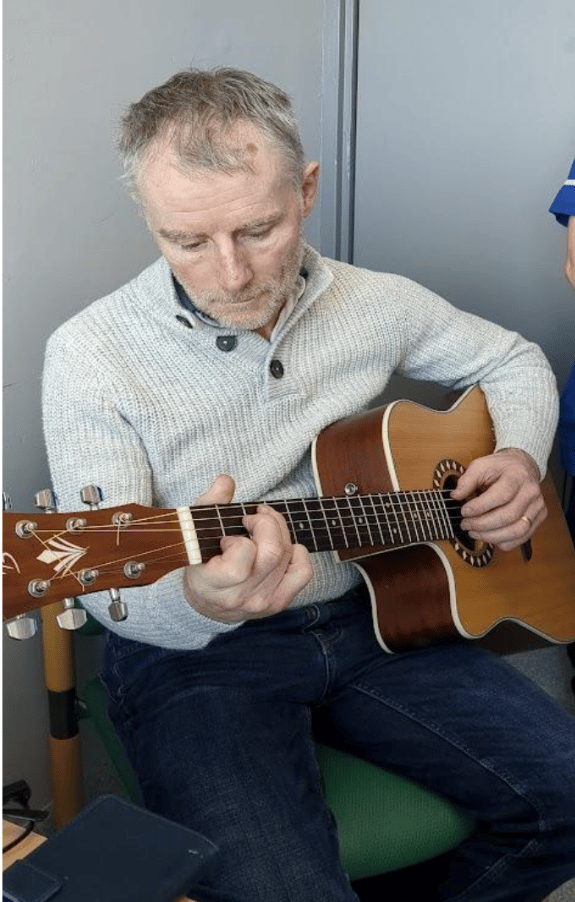Yorkshire musician with Parkinson’s plays guitar again after 20 years thanks to “miracle” brain implant
and live on Freeview channel 276
Phil Webster, 62, underwent deep brain stimulation (DBS) surgery at the Royal Hallamshire Hospital in Sheffield, and has now regained his ability to play guitar, write music, and hold his wife’s hand.
Phil, from Shipley, was a regular on the local music scene in West Yorkshire in the 90s but his diagnosis of Parkinson's disease in 2004 made it impossible for him to play, due to involuntary movements and tremors.
Advertisement
Hide AdAdvertisement
Hide AdHe said: “I was falling daily, sometimes hourly. I smashed both my shoulders and had to have them replaced, I broke my neck, and in the last 16 months preceding my surgery I broke my nose three times alone.
“After the surgery, my bodily movements are so much better. It’s been so rewarding to be able to keep up with my wife’s walking pace and to simply hold her hand while walking with the dogs.”


In DBS, tiny electrodes are implanted deep inside the brain and connect with wires under the skin to a tiny pulse stimulator device inside the chest, similar to a pacemaker, which sends electrical signals to the damaged areas of the brain.
It has been used for over 20 years to treat patients with conditions like Parkinson’s and dystonia, but a new feature was used in Phil’s treatment last July to capture data directly from the implanted leads.
Advertisement
Hide AdAdvertisement
Hide AdThe data shows the patterns of his brain activity allowing clinicians to see at a glance how to optimise his medications and therapy.
Mr John Yianni, consultant neurosurgeon and stereotactic radiosurgeon at Sheffield Teaching Hospitals NHS Foundation Trust, said: “We are delighted to hear that this specialist treatment has helped reduce some of the terrible effects of Phil’s condition.
“In Phil’s case [the new technology] has made an immeasurable difference to the quality of his life and, together with the information accrued by the new novel technology captured from his device away from the hospital, we have been able to make adjustments to his therapy over a much shorter period of time than was previously possible.”
Sheffield Teaching Hospitals is one of a handful of leading neurosurgical centres in the country that provides DBS.
Advertisement
Hide AdAdvertisement
Hide AdPhil added: “The impact of the deep brain stimulation surgery has been incredible. I can walk straight, and regained my ability to play my guitar and write music.
“It’s been phenomenal. I am eternally grateful to all the nurses at the Royal Hallamshire Hospital, the medical team and surgeon Mr Yianni for all they have done.”
Comment Guidelines
National World encourages reader discussion on our stories. User feedback, insights and back-and-forth exchanges add a rich layer of context to reporting. Please review our Community Guidelines before commenting.